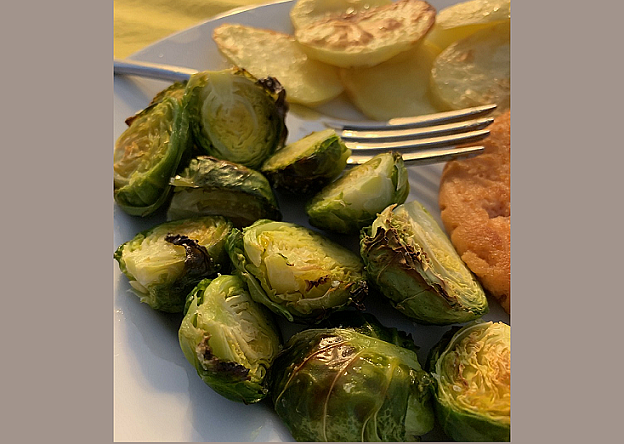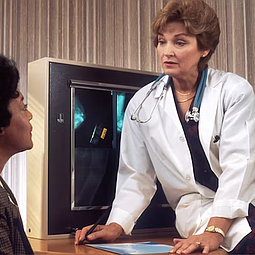Bring on the Brussel Sprouts
November 11, 2023 at 6:48 p.m.
Cruciferous vegetables are a diverse group that includes arugula, bok choy, broccoli, Brussels sprouts, cabbage, cauliflower, kale, radishes and turnips. These vegetables originated from a common ancestor, the wild cabbage (Brassica oleracea). Farmers, gardeners and breeders over the centuries have selected different variations from this single species for larger leaves, terminal buds, flowers and lateral buds to create the cultivars of cabbage, kale, cauliflower, broccoli, Brussel sprouts.
Most cruciferous vegetables are rich in vitamins and minerals, such as folate and vitamin K. Dark green cruciferous veggies also are an excellent source of vitamins A and C. In addition, these vegetables are rich in fiber and low in calories.
Trygve Tollefsbol is a professor in the College of Arts and Sciences’ Department of Biology at the University of Alabama Birmingham, and he has spent nearly 20 years researching cancer prevention methods with his team.
At the center of their research is vegetables and how they affect our health.
"The cruciferous vegetables are often termed 'superfoods' because of the many health benefits that they confer," said Tollefsbol. "They are well known for their ability to prevent cancer in many cases, and this applies to common cancers such as those of the breast and prostate and other cancers. The cruciferous vegetables are generally beneficial at all ages and are safe to consume."
These vegetables contain healthful phytochemicals such as sulforaphane. This compound has been shown to prevent cancer in both cell cultures of human cells as well as animal studies. Some studies have suggested that isothiocyanates, such as sulforaphane in cruciferous vegetables, can stabilize glucose levels that can help control diabetes." Cruciferous vegetables can also have some antidiabetic effects although their efficacy is not as strongly supported as it is for anticancer effects. Both cancer and diabetes increase with age which makes consumption of cruciferous vegetables even more important as we age," said Tollefsbol.
Cruciferous vegetables are very easy to incorporate into a healthy diet. Generally, about 2 cups per day, depending on the specific cruciferous vegetable, may have healthful effects. They can be added to salads or made into smoothies. "With anything, there is usually a happy medium and this applies to cruciferous vegetables as well. They are considered very safe at all ages as long as too much is not consumed. High doses of sulforaphane, for example, could be associated with thyroid functions but this generally only applies to those who are deficient in iodine," said Tollefsbol.
Veggie juices are often fun to make as long as there are relatively low levels of sugar that are added. Salads with broccoli, kale, cauliflower, or other cruciferous vegetables are also a good approach that many enjoy. Some of these veggies can be grilled as well. If they are cooked, microwaving or steaming are the best approaches. The vegetables can be marinated with olive oil for a healthy and fun dish. There are even kale chips the one can snack on.
It is best to consume fresh cruciferous vegetables. They can be frozen long-term but this often requires their being blanched before freezing. This process can destroy sulforaphane. "In general, fresh is best although they can be frozen if necessary," said Tollefsbol.
Other Potential Hidden Health Benefits
In a study published last year in the Nature journal Communications Biology, scientists at John Hopkins University showed that sulforaphane can inhibit the replication of SARS-CoV-2, the coronavirus that causes COVID-19, and another human coronavirus in cells and mice.
While the results are promising, the researchers caution against rushing to buy sulforaphane supplements available online and in stores. They note that studies of sulforaphane in humans are necessary before the chemical is proven effective, and they further point out that there is a major lack of regulation covering such supplements.
Sulforaphane exhibits several biological properties that may help combat some neurological and psychiatric conditions. A randomized, placebo-controlled trial in 2021 demonstrated that a 6-week sulforaphane intervention (30 mg/day) safely improved depressive symptoms in 66 participants with presence of mild to moderate depression.
Various animal studies have demonstrated improved cognitive ability and reduced learning/memory deficits following sulforaphane interventions in Alzheimer’s disease models. It is believed sulforaphane may also be good for bone health and treating some liver conditions, such non-alcoholic fatty liver disease (NAFLD), a common condition where excess fat accumulates in the liver of those who drink little or no alcohol. Some studies have suggested that eating cruciferous vegetables three times a week may decrease risk by more than 50% for illnesses such as heart disease, Irritable Bowel Syndrome (IBS), gastrointestinal illness (GI), and high blood pressure.
Many types of cruciferous vegetables are high in vitamin K. This can be an issue for those taking the blood thinner warfarin (Coumadin). These individuals need to monitor their intake. Sudden increases or decreases of vitamin K can cause serious changes in the effectiveness of this prescription medicine. It’s extremely important for anyone taking warfarin to keep their vitamin K intake consistent from day to day. 





